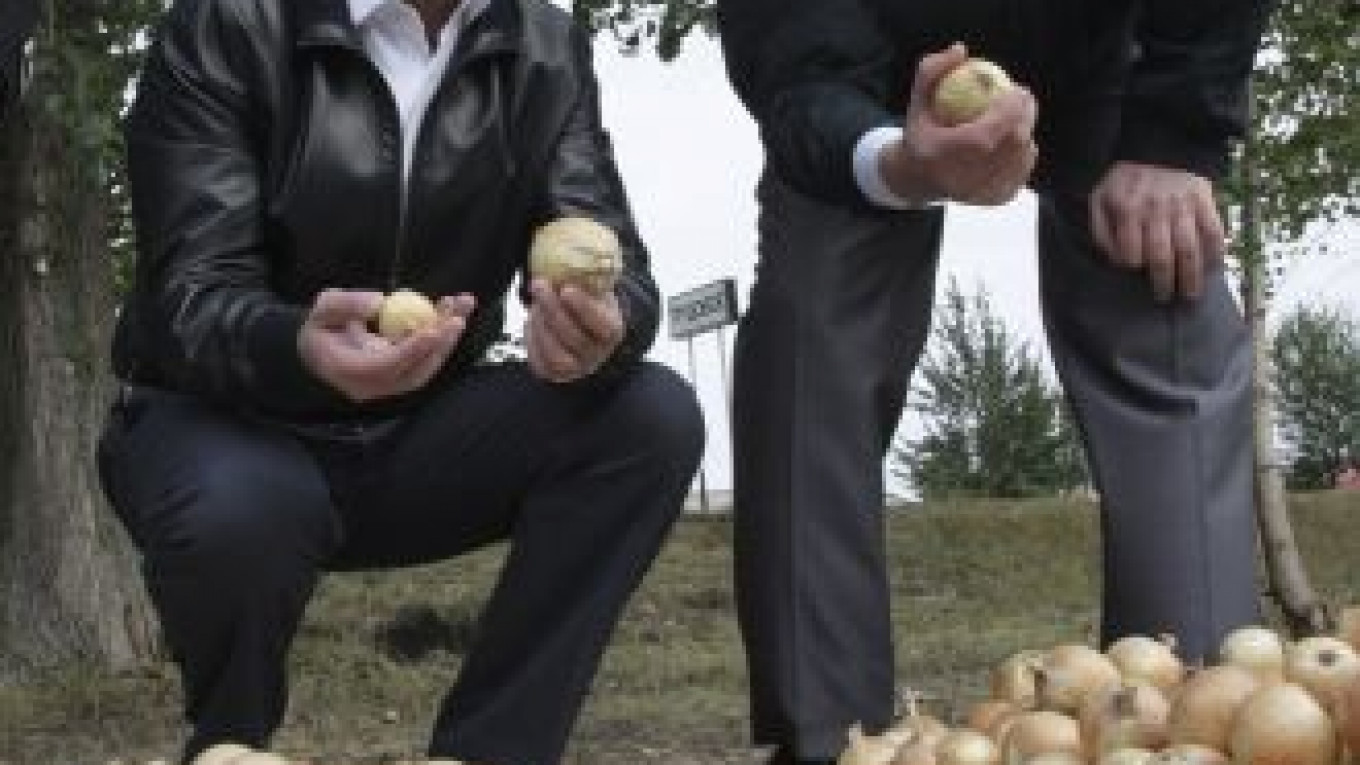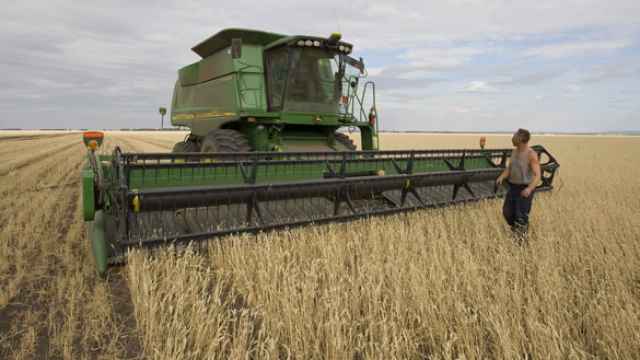VORONEZH — Russia on Monday gave another mixed signal about the duration of a grain export ban set initially from Aug. 15 to Dec. 31, but European Union grain markets continued to rise, apparently ignoring the latest twist.
President Dmitry Medvedev signaled that the ban might be lifted earlier than Dec. 31 this year and that state grain stocks could be insufficient to cover the drought-hit country's needs.
His remarks contradicted a statement from Prime Minister Vladimir Putin, who last week said the ban might be extended to late 2011.
Wheat futures in Paris and London extended gains to one-month highs, supported by bullish export prospects in the wake of weather-hit harvests in some major producing countries.
The closure of U.S. markets for the Labor Day holiday kept volumes light, while this coming Friday's monthly crop report from the U.S. Department of Agriculture was adding some uncertainty to the market outlook, traders said.
Russia's drought helped drive benchmark U.S. wheat futures to two-year highs of $8.41 a bushel in early August and sparked fears of food price spikes.
"The grain embargo is a forced but temporary measure. … As soon as we understand how much grain we have harvested, the embargo will be lifted," Medvedev said.
"All embargoes will be lifted; there should be no doubt about that," he told agricultural commodities producers in the city of Voronezh, the capital of a region badly hit by the drought.
Russia has set an export ban on all grain and grain products to stabilize domestic prices after the drought was estimated to have cut the country's grain output to 60 million to 65 million metric tons, from 97 million tons last year.
Moscow has sent mixed signals about the ban already. Medvedev said last month that the ban could be lifted before its planned Dec. 31 expiry, depending on the harvest, but Putin said it could last into 2011.
SovEcon agricultural analysts said earlier Monday that they expected the ban to be lifted in the middle of 2011.
Medvedev also said the government grain stocks were insufficient to cover all of the country's needs, in what could potentially be a signal of the need for imports.
"The intervention stocks will not be enough to close all the issues. … In any case we need to … look for grain," he said.
"Bottlenecks [in the market] still need to be opened, and that is the responsibility of the government," he added.
The government intervention grain stocks are currently 9.5 million tons. It is part of the total intervention stocks estimated to be between 21 million and 25 million tons. Analysts believe that stocks may be lower.
Officials and analysts have said Russia may have to import 3 million to 6 million tons of grain as a consequence of the drought in the current 2010-11 crop year, which started July 1.
A Message from The Moscow Times:
Dear readers,
We are facing unprecedented challenges. Russia's Prosecutor General's Office has designated The Moscow Times as an "undesirable" organization, criminalizing our work and putting our staff at risk of prosecution. This follows our earlier unjust labeling as a "foreign agent."
These actions are direct attempts to silence independent journalism in Russia. The authorities claim our work "discredits the decisions of the Russian leadership." We see things differently: we strive to provide accurate, unbiased reporting on Russia.
We, the journalists of The Moscow Times, refuse to be silenced. But to continue our work, we need your help.
Your support, no matter how small, makes a world of difference. If you can, please support us monthly starting from just $2. It's quick to set up, and every contribution makes a significant impact.
By supporting The Moscow Times, you're defending open, independent journalism in the face of repression. Thank you for standing with us.
Remind me later.






